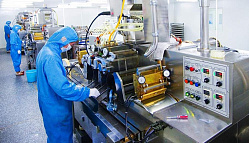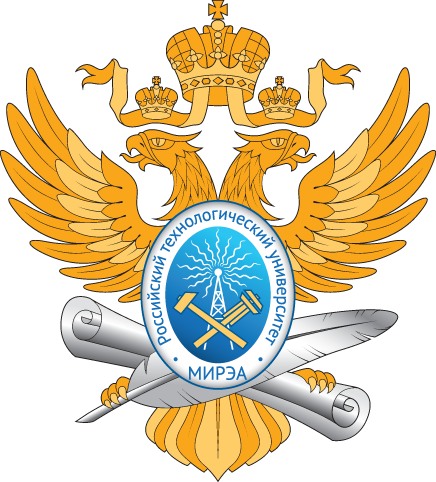27.03.03 System analysis and management

In this area of training, students acquire the competences required for successful use of digital technologies of the modeling, management, analysis and synthesis of system solutions in order to create complex engineering products. The educational program is built around the principle of integrated and harmonized combination of system-, architecture- and project-oriented approaches toward the life cycle management of complex engineering facilities.
Level of education:
Bachelor's degree
Form of training:
Full-time (daytime)
Venue of training:
Moscow
Entrance exams:
— Mathematics (major)
— Russian language
— Information science and ICT/ Physics
— Russian language
— Information science and ICT/ Physics
Programs, specializations:
Automated systems engineering

Upon completion of this program, students become professionals in the development of principles, means, methods and tools of human activity dedicated to modeling, system-level analysis, management, synthesis, manufacture and operation of automated systems and other complex engineering objects.
Successful alumni become engineers who can competently participate in developing software and algorithms to support the life cycle of complex engineering products. The experience of leading foreign and domestic companies in system engineering and engineering project management, as well as educational programs of leading foreign universities, were taken into account when shaping the curriculum.
The training program is customized to meet the needs and requirements of specific employers in high-tech industries, such as nuclear energy, and those that develop complex data collection and processing systems as well as the needs of research institutions and innovation-based development centers.
Alumni will be able to successfully work in teams conducting research and development in the following areas:
- writing of software and algorithms for lifecycle management systems, including their conceptual and engineering design, testing, operation and maintenance
- design and operation of digital manufacturing sites
- requirements engineering
- life cycle information support for complex engineering products
- object-oriented, structural, functional, and simulation modeling of complex engineering objects
The program is implemented in cooperation with the following international partners:
- Institut d’Électronique, de Microélectronique et de Nanotechnologie; École Centrale de Lille
- International Council for Systems Engineering (INCOSE)
- International Project Management Association (IPMA)
Successful alumni become engineers who can competently participate in developing software and algorithms to support the life cycle of complex engineering products. The experience of leading foreign and domestic companies in system engineering and engineering project management, as well as educational programs of leading foreign universities, were taken into account when shaping the curriculum.
The training program is customized to meet the needs and requirements of specific employers in high-tech industries, such as nuclear energy, and those that develop complex data collection and processing systems as well as the needs of research institutions and innovation-based development centers.
Alumni will be able to successfully work in teams conducting research and development in the following areas:
- writing of software and algorithms for lifecycle management systems, including their conceptual and engineering design, testing, operation and maintenance
- design and operation of digital manufacturing sites
- requirements engineering
- life cycle information support for complex engineering products
- object-oriented, structural, functional, and simulation modeling of complex engineering objects
The program is implemented in cooperation with the following international partners:
- Institut d’Électronique, de Microélectronique et de Nanotechnologie; École Centrale de Lille
- International Council for Systems Engineering (INCOSE)
- International Project Management Association (IPMA)
Alumni can be employed as
- process engineer
- system analyst
- system architect
- complex computer system developer
Program subjects
- Systems engineering
- Systems theory and analysis
- Programming theory and tools
- System modeling
- Requirements engineering
- Decision-making models and techniques
- Lifecycle control information technology
- Project administration
- System verification and validation
- Configuration control
- System architecture
• Systems Engineering Department
• Core Department No. 533 on Information and Management Space Complexes
- Educational Activity
-
Institutes
- Institute of Information Technologies
-
Institute of Artificial Intelligence
- About the Institute
- Institute Administration
- History of the Institute
-
Training programs
- Bachelor's Degree Programs
-
Master's Degree Programs
- 01.04.02 Applied mathematics and information science
- 09.04.01. Informatics and computer engineering
- 12.04.04 Biotechnical systems and technologies
- 15.04.04 Automation of technological processes and production
- 15.04.06 Mechatronics and robotics
- 27.04.03 System analysis and management
- 27.04.04 Engineering system control
- Infrastructure
- Alumni
- Contacts
- Institute for Cybersecurity and Digital Technologies
-
Institute for Advanced Technologies and Industrial Programming
- About the Institute
- Institute Administration
- History of the Institute
-
Training programs
-
Bachelor's Degree Programs
- 09.03.02 Information systems and technologies
- 11.03.04 Electronics and nanoelectronics
- 12.03.05 Laser technology and laser techniques
- 15.03.01 Mechanical engineering
- 22.03.01 Materials science and technology
- 27.03.01 Standardization and metrology
- 28.03.01 Nanotechnology and microsystems engineering
- 29.03.04 Decorative material working techniques
- 54.03.01 Graphic design
-
Master's Degree Programs
- 09.04.02. Information systems and technologies
- 11.04.04 Electronics and nanoelectronics
- 12.04.02 Optical engineering
- 15.04.01 Mechanical engineering
- 22.04.01 Materials science and technology
- 27.04.01 Standardization and metrology
- 29.04.04 Decorative material working techniques
- 54.04.01 Graphic design
-
Bachelor's Degree Programs
- Infrastructure
- Alumni
- Contacts
- Institute of Radio Electronics and Informatics
- Institute of Management Technologies
- Lomonosov Institute of Fine Chemical Technologies
- Institute of International Education
-
Mega-Laboratories
- Motion Capture Laboratory
- Immersive Technologies Laboratory
- Laboratory for the Development and Transfer of Microfluidic Technologies (DTMT)
- Cell Technologies Megalaboratory operating on the basis of the Department of Chemistry and Technology of Biologically Active Compounds, Medical and Organic Chemistry named after N.A. Preobrazhensky
- General Biotechnology Megalaboratory
- Industry 4.0: Digital Robotized Production center
- Laboratory of Intelligent Autonomous and Multi-Agent Robotic Systems
- Research and Educational Center for Biosynthesis, Isolation and Purification of Monoclonal Antibodies (Generium)
- Rare and Precious Metals Research and Technological Center operating on the basis of the Department of Chemistry and Technology of Rare Elements named after K.A. Bolshakov
- Laboratory of Analytic, Modeling, Design and Digital Prototyping Technologies
- Import Substitution of Information Technologies Educational and scientific testing complex
- Smart Production Systems Educational and Scientific Center
- Elastomers. Thermoplastics. Technologies Educational and Research Center operating on the basis of the Department of Chemistry and Technology of Elastomer Processing named after F.F. Koshelev
- Catalytic and Mass Exchange Processes center
- Center of Innovative Technologies in Microelectronics
- Centre for Additive Polymer Technologies
- Center for Cybersports Robotics
- Mobile Robotics University Laboratory
- Radio electronic Technologies Megalaboratory
- Situation center
- Scientific and Educational Center for Medical Radiology and Dosimetry
- Laboratory of Geographic Information Systems and Technologies
- Educational and Research Center for Space Monitoring ("CosMoCenter")
- Techno-coworking
- Bachelor's Degree Programs
- Master's Degree Programs
- Additional Education Programs
- Physical Education and Sports
© 2025 MIREA - Russian Technological University
